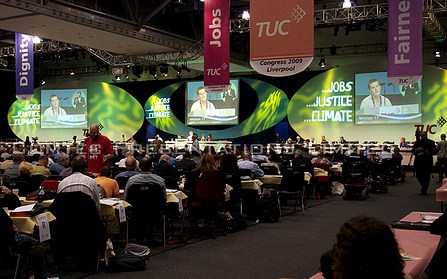Democrat November-December 2004 (Number 84)
EU Charter of Fundamental Rights
The right to strike and Article II 28

The EU Charter of Fundamental Rights is part II of the European Constitution and has very little if anything to do with extending or boosting workers or human rights:
* The Charter does NOT get around the Thatcher anti-trade union legislation.
* The Charter does NOT contain a list of fundamental trade union rights.
* There was NO watering down of the Charter by Mr Blair or anybody else.
* The Charter does not give a long list of rights either, except in vague terms.
For example Article II-1 says: “Human dignity is inviolable. It must be respected and protected.”
This “right” is not further defined and could mean anything the EU Court of Justice chooses it to mean.
Article II-2 (1) simply states: “Everyone has the right to life.?”
The question is “where does life begin and where does it end?” Most of the 25 EU Member States have quite different laws on abortion and euthanasia. It is perfectly clear that national laws must stand. The first “right” – “Everyone has the right to life?, is just a pleasant vague phrase.
This is in line with Subsidiarity where matters are handled nationally rather than at the EU superstate level.
Article II-51 (1) states: “The provisions of this Charter are addressed to the Institutions, bodies and agencies of the Union with due regard for the principle of subsidiarity”
The Constitution Article II-28 states: “Workers and employers, or their respective organisations, have, in accordance with Union law and national laws and practices, the right to negotiate and conclude collective agreements at the appropriate levels and, in cases of conflicts of interest, to take collective action to defend their interests, including strike action.”
Subsidiarity would apply in this case and is backed by the declarations in the rear pages of the Treaty. There has been no attempt to “water it down”, or any attempt to alter the Charter since it was solemnly agreed at the same time as the Nice Treaty negotiations two years ago.
There is no list of fundamental trade union rights in the Charter.
This is why Mr Blair was happy to agree the text of the whole Treaty in July precisely because anti-trade union legislation in Britain remains on the Statue Book. These national laws will remain in force even if the Charter within the EU state Constitution is ratified by all 25 Member States.
Mr Blair’s own Minister for Europe in 2001, Keith Vaz, stated quite clearly: “The EU Charter of Fundamental Rights will have no more weight in court than the “Beano”.
Article II-51 (1) states: “The provisions of this Charter are addressed to the Institutions, bodies and agencies of the Union with due regard for the principle of subsidiarity”
So what precisely is going on?
There is an attempt to win the labour movement over to support the whole EU Constitution on one or two vague articles in the Charter.
Is there collusion between the Prime Minister’s office and the TUC to damp down all debate or discussion on the EU state Constitution at this year’s Congress?
The purpose of the Charter, as the EU Court of Justice requested, is to further extend the power of the Court which only acts on behalf of the EU. This is precisely for the purpose of those who gain out of the centralisation of power and part of turning the EU into a state. The EU Constitution and in particular the EU Charter of Fundamental rights will not improve, extend or boost the rights of those who work. If the Charter ever becomes part of EU law, these rights will be diminished. The Charter would give a blank cheque to this EU institution precisely because this EU Court can interpret matters as it feels fit.
That is clear is the need to have an open and vigorous debate in the labour movement. This would allow a rational position to be arrived at after taking into account all the implications of the EU state Constitution. The Charter of Fundamental Rights is only a small 24 page part amongst 852 pages of a Treaty.
overnments across the European Union are putting austerity policies in place which include: massive cuts to welfare states, pressing down wages and pensions, and raising unemployment. The public sector is to be handed to privatisation with loss of accountability and no regard whatsoever for the social consequences.
The ConDem Government has agreed that national budgets and therefore austerity policies be vetted by the European Commission. The budget must be in line with the EU’s Growth and Stability Pact where Britain has exceeded the limits on government borrowing of 60% of GDP and deficit of 3% of GDP - currently and respectively 71.4% and 11% (Office of National Statistics). EU Member States are to be fined if their budgets are not brought back into line with the Pact.
The herd of elephants in the room consists of the policies and legislation of the EU enshrined in the European Constitution put in place last December. This includes the four freedoms – “free movement of capital, services, goods and labour” within the EU super-state and all that entails.
The simple alternative is to withdraw Britain from the EU and not be subject to the dictats of unelected EU institutions which act on behalf of the transnational corporations and banks against the interests of those who work for their living. The benefits would be economic, political and defence of democracy and accountability.